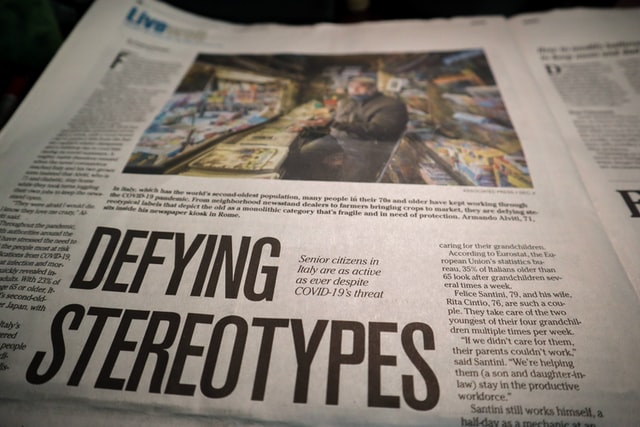The Cake Story
-
 What is shock-responsive social protection?
What is shock-responsive social protection?
- We are living in a world in which crises are becoming more complex, frequent and last longer. Sadly, it is the vulnerable and fragile population which is most affected by this ever more complex environment. What are shock-responsive social protection systems? While social protection systems are risk-oriented by nature, shock-responsive social protection programs go one step further and take a risk and vulnerability perspective. They try to address potentially destructive human and natural hazards before, immediately after, and in the long-run after a particular shock hit. There is still a lot we can do in the area of shock-responsiveness, a field which has definitely grown since the COVID-19 outbreak.
-
 Analyzing Bias with Text, Images, And Sound
Analyzing Bias with Text, Images, And Sound
- This year I presented one of my papers at the virtual ASSA 2022, one of the most well-known international conferences in economics. I took the opportunity to also listen to some really interesting sessions from some colleagues in the field. One session was especially interesting to me, as it combined a topic I am really interested in with data science methodologies I am really interested in. The session had the name of this blogpost “Analyzing Bias with Text, Images, And Sound”, and consisted of 4 papers analyzing text, images and sound to detect bias. So let’s have a brief look at each of the papers to understand how we can use cool new data sources to disclose stereotypes and biases.
-
 What can we learn from Afghanistan for development aid projects around the globe?
What can we learn from Afghanistan for development aid projects around the globe?
- Most of us were shocked about the speed with which the Taliban reconquered Afghanistan in August, after international troops ended their operations in the country. A lot of NGOs and development aid workers started to say that the progress made during nearly 20 years, especially in the area of gender equality, was destroyed in just a couple of days. So – what can we learn from what has happened in Afghanistan for future development projects around the world? Is it all in vain?
-
 Automation - Are we becoming redundant?
Automation - Are we becoming redundant?
- The industry 4.0 transformation consists of several technological advances, reaching from robotics, over IT and digitisation, to artificial intelligence and machine learning. One thing that all have in common is automation. Is the automation of human tasks making us redundant?
-
 Are robots grabbing our jobs - and what are they doing to inequality?
Are robots grabbing our jobs - and what are they doing to inequality?
- Robotization is unstoppable by now. It is still unclear how these technological improvements will affect labor markets, and especially the poor. Are they a potential to reduce inequality - or a threat further exacerbating already existing gaps?
-
 What has the pandemic taught us about inequality?
What has the pandemic taught us about inequality?
- The pandemic has drawn a clear picture of what multidimensional poverty really means. The COVID-19 crisis has shown more than ever the different vulnerabilities the poorest face.
-
 How can we use Data Science as a tool to address inequality?
How can we use Data Science as a tool to address inequality?
- We live in an increasingly data-driven world. But how can we use Data Science as a tool to address inequality? This article gives an overview of three ways in which we can transform Data Science into a tool to fight inequality.
-
 How can we make the cake as big as possible, and how can everybody get a piece of it?
How can we make the cake as big as possible, and how can everybody get a piece of it?
- Often we hear that inequality is bad for us. That it affects our possibility to grow, that it creates social frictions and unrest, and that it violates human rights. But what is inequality exactly?
subscribe via RSS